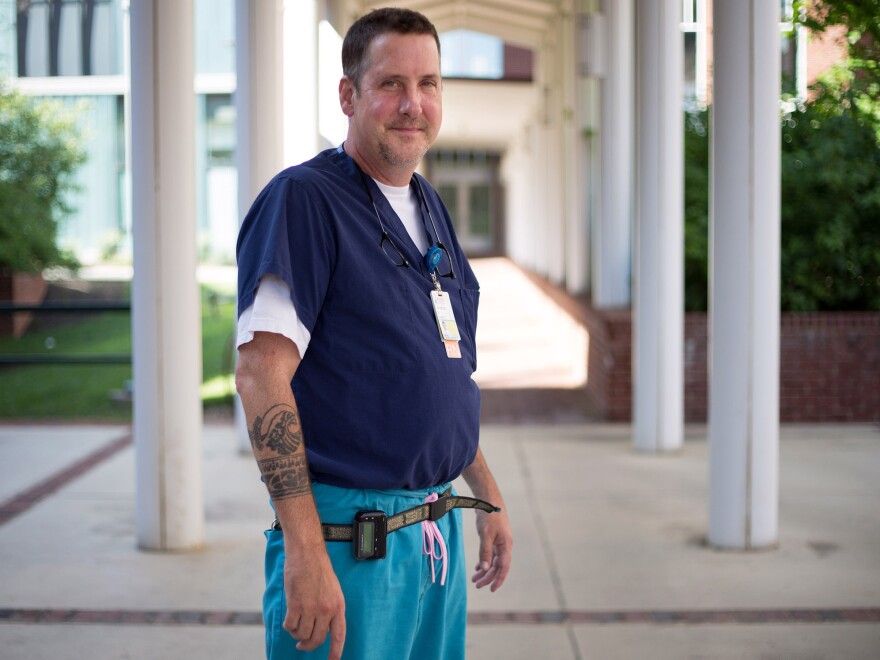Jonathan Bartels is a nurse working in emergency care. He says witnessing death over and over again takes a toll on trauma workers — they can become numb or burned out.
But about two years ago, after Bartels and his team at the University of Virginia Medical Center, in Charlottesville, Va., tried and failed to resuscitate a patient, something happened.
"We had worked on this patient for hours, and the chaplain came in and kind of stopped everyone from leaving the room," Bartels recalls.
"She said, 'I'm just going to pray over this patient and then you all can leave,' " he says. "And I watched it and I felt -- it was the act of stopping people that really inspired me."

While the prayer wasn't totally comfortable to Bartels, because he, like many at the hospital, is from a different religious tradition than the chaplain, the act of pausing to pay silent respect and acknowledge the loss felt right.
"So the next time we worked on another person who didn't make it, I decided to be bold and stop people from leaving," he says. "I just said, 'Can we stop just for a moment, to recognize this person in the bed? You know, this person before they came in here was alive — they were interacting with family, they were loved by others, they had a life.' "
The team did it. Standing together silently, they stopped — just for a minute.
"When it was done, I said, 'Thank you all, and thank you for the efforts that we did to try and save them.' People walked out of the room, and they thanked me," Bartels says. "And they thought it was really awesome."
The idea of taking a moment of silence together after a death began to spread to other teams throughout the hospital — other emergency workers picked it up, as did an anesthesiologist and a surgeon. What's come to be called The Pause is now being taught as part of the curriculum at the university's nursing school. Emergency medical technician Jack Berner says it helps him handle the toughest cases.
"It makes it so we can actually view the person as a person, rather than as a patient that we see on an everyday basis," he says. "You can relate more to the case, [knowing] it's somebody's father or their mother, their sister or their uncle, rather than somebody you just see for five minutes."
Bartels hopes The Pause will help medical workers like Berner acknowledge and accept the loss without disconnecting emotionally.
"So you are able to feel, and you are also able to sense and give back," Bartels says. Even if the person who died wasn't a relative, health workers share some of the pain in the loss of each life — and need to be able feel it, but without being overwhelmed.
"I can also acknowledge the pain that I bore witness to, in caring for that family, and caring for that patient," he explains.
The concept is spreading beyond the University of Virginia. After the dean of its school of nursing talked about the practice in a speech at a national conference, a nurse from Providence Sacred Heart Medical Center took it home to her co-workers in Spokane, Wash.
This story is part of NPR's reporting partnership with local member stations and Kaiser Health News.
Copyright 2015 WMRA


